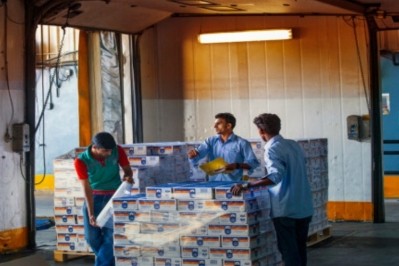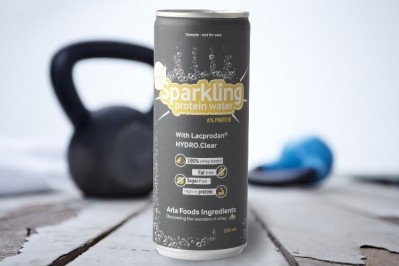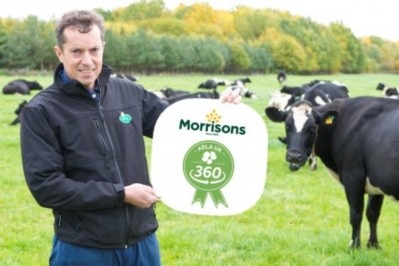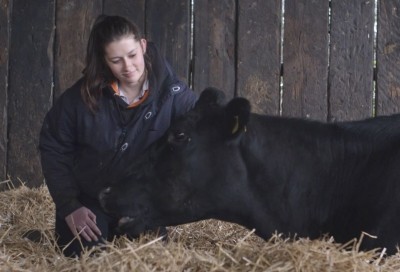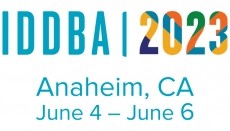Arla pays out all 2018 profits to farmers
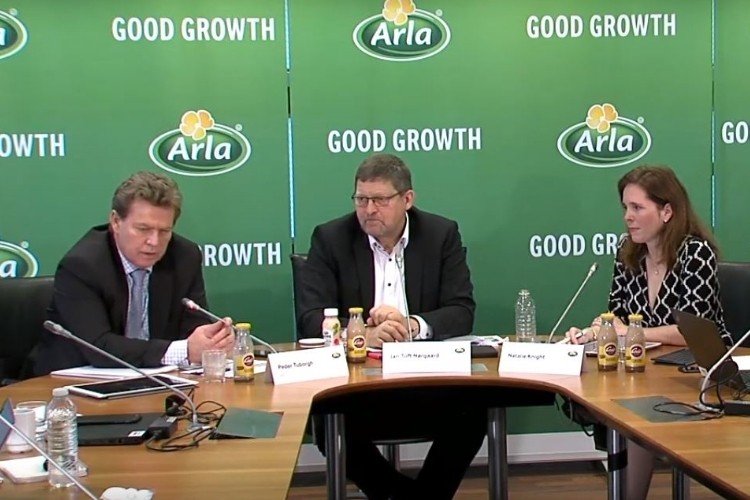
Arla announced the profits pay-out as a one-time gesture that was made possible by its ‘historically strong balance sheet’. Co-operative farmers will receive an extra 2.3 eurocent per kilogram of milk that they give or sell to Arla this year.
Arla wanted to help pay back its farmers following the drought in Europe last summer that slowed milk production and increased feed prices.
Natalie Knight, CFO of Arla, told DairyReporter, “I think that’s pretty significant. Usually it’s a 1 eurocent supplementary payment that they get, so this is quite a bit more than what would usually be coming at this time of year.
“I don’t want to suggest that this fixes everything, but I do think one of the nice things about being a cooperative is that we are in a position that when our balance sheet is strong and when the macroeconomic environment requires it we are able to support the farmers.”
The Calcium effect
Arla started off 2018 with a ‘difficult first quarter’, according to Knight, but saw sales and revenue bounce back in the second half of the year. Total revenue was €10.4bn ($11.8bn) compared with €10.3bn ($11.7bn) in 2017.
But Arla saw the best performance from the first year of Calcium, its internal cost-savings program. It set a goal to deliver €400m ($454m) of “sustainable annual savings by 2021 where €300m ($341m) will be invested in a competitive milk price to the farmer owners and €100m+ ($114m) will be invested back into the company to fund future growth opportunities.”
Arla hoped for Calcium to produce €30m ($34m) in savings in 2018, and it delivered above that goal with €114m ($129m) saved. This came in the form of about 350 slashed jobs, according to Knight, and trimming back on their marketing, supply chain and indirect costs.
In terms of any future layoffs, Knight said, “There’s nothing specifically planned. But obviously this is a program for the next three years so I can’t close the door that nothing would happen. We’ve promised to remain transparent and if we were looking at any changes we would certainly communicate that.”
For Calcium in 2019, she estimates that 80% of company savings will probably come from the supply chains. They want to focus on the waste process - how to reduce it, optimize capacity within the supply chain, etc.
This focus on optimization will be researched at a new innovation center, planned for a 2021 opening in Denmark. Construction is set to begin this fall. At the facility, Arla’s ingredients business will work on advanced separation technology and heat pasteurization technology.
Knight said the vision for it is to get the most out of its milk and whey from separation technology and increase functionality and extend shelf life through the pasteurization. It will be 9,000 sq ft with a mini pilot plant on site.
'Political uncertainty and volatility'
Arla saw strong branded growth across Europe in 2018, reaching a 50.4% brand share. It’s most successful in the UK, Sweden and Germany, which has been important in planning for a potentially harmful Brexit deal.
“We’ve done quite a bit of work and prepared for what we think are all of the scenarios. But clearly, if extreme volatility comes in because of a hard Brexit or a no deal at the end of March, that is volatility that would challenge us and other big players in the market,” Knight said.
Other areas of growth have been in the Middle East and North Africa, where Arla recently announced a deal to acquire a Kraft-branded processed cheese business from Mondelez. It’s expected to close that deal in May and take the number two market position.
Knight said, “It also gives us a state-of-the-art production facility down in the region. So we’re going to have access to new products, recipes and packaging, but also and more importantly, capacity. It’s one of our fast-growing markets and a very high-margin market.”
Overall, Arla’s international business delivered a 4.6% branded revenue growth, despite negative impacts from exchange rates outside of Europe.
Peder Tuborgh, CEO of Arla, said, “We operate in a global market with fast-changing consumer food trends, political uncertainty and volatility. Despite this, our markets around the world delivered good results that we can build on in 2019. With our Good Growth strategy we are on the right track to strengthen our business in a sustainable way.”
